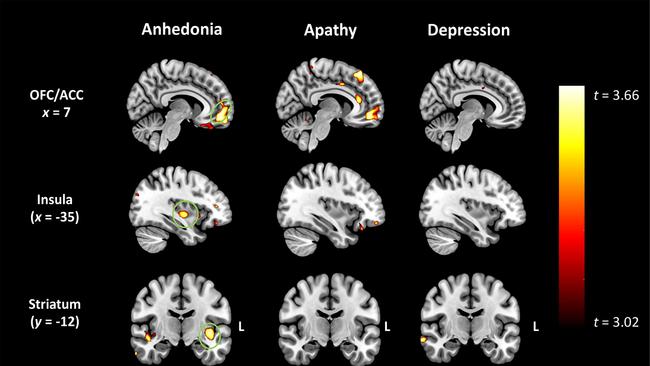Dementia advance signals new treatments
Early-onset dementia causes a profound loss of pleasure in simple enjoyments such as eating a delicious meal or enjoying a sunset, a new study has found.

Early-onset dementia causes a profound loss of pleasure in simple enjoyments such as eating a tasty meal or enjoying a sunset.
New research conducted by the University of Sydney has found degeneration of “hedonic hotspots” in the brain where pleasure mechanisms are concentrated can explain why people with early-onset dementia are often mistaken for having depression.
Researchers believe the breakthrough could lead to new treatments for early-onset dementia, with experts able to target this part of the brain for treatment.
It is the first study to demonstrate a link between “anhedonia”, the clinical definition for a loss of the ability to experience pleasure, and people with frontotemporal (or early-onset) dementia.
In the study, patients with frontotemporal dementia, which generally affects people aged 40 to 65, displayed a dramatic decline from pre-disease onset, in contrast to patients with Alzheimer’s disease, who were not found to show significant anhedonia.
A total of 172 participants were involved in the study, where researchers used brain imaging to find a loss of grey matter density in the frontal parts of the brain, reflecting an atrophy in these pleasure hotspots.

Researchers say that the results point to the importance of considering anhedonia as a primary feature of early-onset dementia.
The paper’s senior author, Muireann Irish from the University of Sydney’s Brain and Mind Centre, said despite increasing evidence of motivational disturbances, no study had previously explored the capacity to experience pleasure in people with frontotemporal dementia.
“Much of human experience is motivated by the drive to experience pleasure but we often take this capacity for granted,” Professor Irish said.
“But consider what it might be like to lose the capacity to enjoy the simple pleasures of life — this has stark implications for the wellbeing of people affected by these neurodegenerative disorders.”
Professor Irish said the breakthrough holds the potential to find new treatments for people with early-onset dementia, which occurs as a result of changes in the brain that affect a person’s memory, mood and behaviour.
“Our findings also reflect the workings of a complex network of regions in the brain, signalling potential treatments.
“Future studies will be essential to address the impact of anhedonia on everyday activities, and to inform the development of targeted interventions to improve quality of life in patients and their families.”


